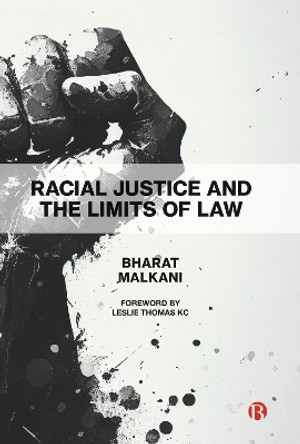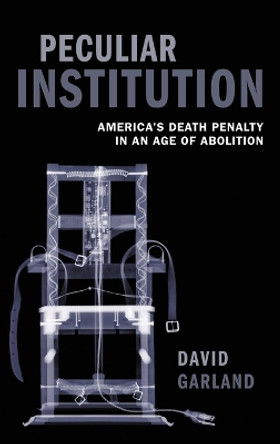Description
It has long been acknowledged that the death penalty in the United States of America has been shaped by the country's history of slavery and racial violence, but this book considers the lesser-explored relationship between the two practices' respective abolitionist movements. The book explains how the historical and conceptual links between slavery and capital punishment have both helped and hindered efforts to end capital punishment. The comparative study also sheds light on the nature of such efforts, and offers lessons for how death penalty abolitionism should proceed in future. Using the history of slavery and abolition, it is argued that anti-death penalty efforts should be premised on the ideologies of the radical slavery abolitionists.
About the Author
Dr Bharat Malkani researches and teaches in the field of capital punishment, and human rights and criminal justice more broadly. He is a member of the International Academic Network for the Abolition of Capital Punishment, and prior to joining academia he helped co-ordinate efforts to abolish the death penalty for persons under the age of 18 in America.
Reviews
'Bharat Malkani, tying together similarities and differences between slavery and capital punishment, provides an important in-depth examination of the connections between the efforts to abolish those practices. Slavery and the Death Penalty is a timely book about America's legacy of racial violence and how that legacy created the foundation of the modern U.S. death penalty. Malkani uses historical analysis and an appeal to human dignity to provide essential lessons for those interested in human rights and the future of America's practice of executing prisoners.'
Jeffrey L. Kirchmeier, CUNY School of Law, USA
'By now, everybody paying attention knows about the role race plays in the criminal justice system as a whole, and the death penalty regime in particular. By punishing murderers of white victims more severely than murderers of victims of color, the death penalty system perpetuates racism. But not until now has anyone set out to thoroughly and systematically examine the relationship between 19th century abolitionists and contemporary death penalty opponents. Bharat Malkani's intriguing and comprehensive work not only identifies deep parallels between slavery opponents and contemporary abolitionists, but also contains wise and potentially valuable lessons for those seeking to end capital punishment in the US. This impressive volume is a must read for those interested in making the criminal justice system truly just.'
David R. Dow, Cullen Professor, University of Houston Law Center; and Rorschach Visiting Professor of History, Rice University, USA
'Bharat Malkani, tying together similarities and differences between slavery and capital punishment, provides an important in-depth examination of the connections between the efforts to abolish those practices. Slavery and the Death Penalty is a timely book about America's legacy of racial violence and how that legacy created the foundation of the modern U.S. death penalty. Malkani uses historical analysis and an appeal to human dignity to provide essential lessons for those interested in human rights and the future of America's practice of executing prisoners.'
Jeffrey L. Kirchmeier, CUNY School of Law, USA
'By now, everybody paying attention knows about the role race plays in the criminal justice system as a whole, and the death penalty regime in particular. By punishing murderers of white victims more severely than murderers of victims of color, the death penalty system perpetuates racism. But not until now has anyone set out to thoroughly and systematically examine the relationship between 19th century abolitionists and contemporary death penalty opponents. Bharat Malkani's intriguing and comprehensive work not only identifies deep parallels between slavery opponents and contemporary abolitionists, but also contains wise and potentially valuable lessons for those seeking to end capital punishment in the US. This impressive volume is a must read for those interested in making the criminal justice system truly just.'
David R. Dow, Cullen Professor, University of Houston Law Center; and Rorschach Visiting Professor of History, Rice University, USA
Book Information
ISBN 9780367899035
Author Bharat Malkani
Format Paperback
Page Count 232
Imprint Routledge
Publisher Taylor & Francis Ltd
Weight(grams) 362g









